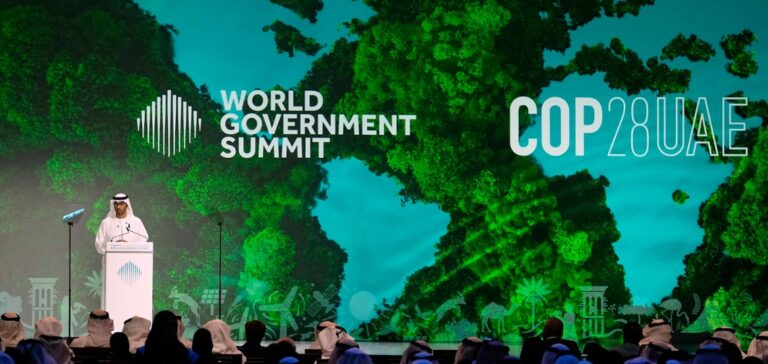The Conference of the Parties (COP28), scheduled to take place in Dubai, promises to be a crucial event for the future of the climate. However, it raises a thorny issue: the influence of lobbies and big oil. COP28 President Sultan Al Jaber, who is also head of the Emirates’ national oil company, opened the doors to all points of view, including those of the lobbies and big oil. This decision marks a turning point in the conference’s approach to stakeholders, and raises concerns about the integrity of the negotiations.
The Presence of Lobbies: An Unavoidable Reality
Like its predecessors, COP28 welcomes a diversity of players, including lobbies, to its “blue zone” dedicated to negotiations. These pressure groups obtain accreditation by joining either a national delegation or one of the many observer organizations. This practice, while legal, raises questions about conflicts of interest and undue corporate influence on climate decisions. A recent BBC report uncovered internal briefings revealing the use of COP meetings to promote Emirati energy projects, illustrating the blurring of diplomacy and commercial interests.
Transparency and Conflicts of Interest
The UN has been criticized for its lack of transparency regarding participants’ affiliations. Until recently, there was no requirement to declare affiliation or financial relationship with the organization allowing accreditation, making it difficult to detect lobbyists. Faced with this situation, members of the US Congress and the European Parliament have expressed their concern, calling for stricter rules to limit the influence of polluters. In response, a group of UN experts recommended greater transparency on the part of non-governmental entities.
The Impact of Lobbyists on COP28
The presence of lobbyists at COP28 is not insignificant. History has shown that their influence can extend to the drafting of official texts. For example, Article 6 of the Paris climate agreement, which created a carbon credit trading mechanism, was partly attributed to pressure from the oil industry. In Dubai, lobbyists could influence the vocabulary of the agreements, particularly on issues such as CO2 capture and storage, green hydrogen and “low-carbon gases”. These semantic debates could have major consequences for the scope and effectiveness of climate policies.
COP28 is shaping up to be a crossroads where climate issues collide with economic interests. While some are calling for a boycott, others see the conference as an opportunity to hold all industries accountable. The question remains: will COP28 be able to reconcile climate imperatives with the reality of industrial lobbying?





















